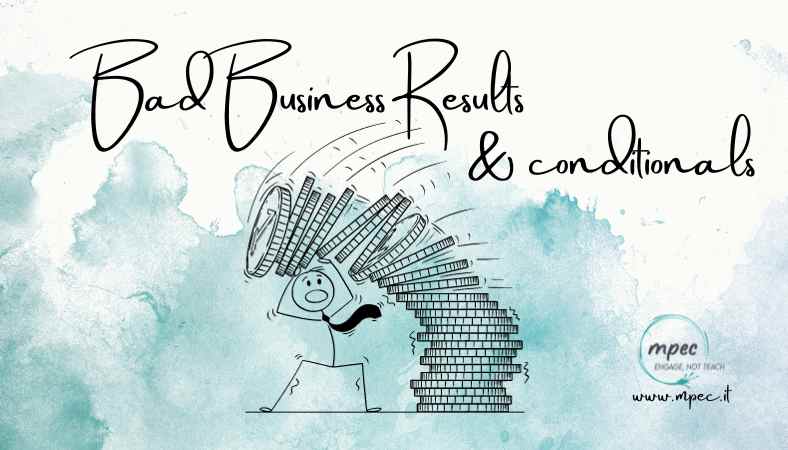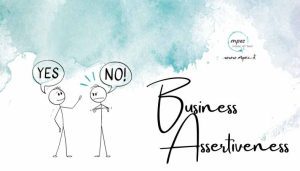Benvenuti al nostro Business Conversation Club! L’attenzione di oggi è su un aspetto impegnativo ma fondamentale della vita professionale: discutere di un risultato aziendale negativo. Ci concentreremo specificamente sull’uso dei condizionali per esprimere situazioni ipotetiche, risultati e soluzioni. Questa sessione vi aiuterà a navigare attraverso conversazioni aziendali difficili con tatto e chiarezza. Che si tratti di capire cosa è andato storto o di esplorare come le cose avrebbero potuto essere diverse, padroneggiare l’uso dei condizionali è fondamentale. Miglioriamo le nostre competenze comunicative per queste discussioni impegnative!
Prepared for you by: My Personal English Coach
Non sai da dove iniziare?
Not sure where to start?
How This Works:
You will follow a coaching & grammar exploration of a situation of your choice. Before you head to the break out rooms for the 1st round of conditional-infused conversation, make sure you have identify a specific business situation from your past or from public domain. You’ll briefly summarise the situation and explain why this is your choice for today’s conversation: Talking About Bad Business Results Using Conditionals. Are you ready?
Round 1: Understanding the Result
- If the company’s /leader’s strategy had been more aggressive, do you think the outcome would have been different?
- Is there a possibility that someone made a mistake or overlooked something?
Key Grammar/Vocabulary Expressions:
- Second Conditional (e.g., “If we had known, we would have…”)
- Past Perfect Conditional (e.g., “Had we seen the signs, we might have…”)
- Speculation (e.g., “It’s possible that…”)
- Hypothetical Outcome (e.g., “The result could have been…”)


Round 2: Exploring Alternatives
Let’s explore alternatives in that particular business situation, shall we?
- “If you were in charge at the time, what would you have done differently?”
- “Should/if someone had invested more in research, would that have altered the outcome?”
Key Grammar/Vocabulary Expressions:
- Third Conditional (e.g., “If I had been leading, I would have…”)
- Conditional Question (e.g., “Would we have seen a different result if…”)
- Alternative Strategies (e.g., “Another approach might have been…”)
- Reflective Analysis (e.g., “Looking back, we should have…”)
Round 3: Planning for Future
- “If a similar situation arises in the future, what preventive measures could you consider?”
- “How can you ensure that, if faced with such a challenge again, your response will be more effective?”
Key Grammar/Vocabulary Expressions:
- Future Conditional (e.g., “If this happens again, I will…”)
- Precautionary Steps (e.g., “I must ensure that…”)
- Proactive Measures (e.g., “In the future, I could…”)
- Lesson Learned (e.g., “The key takeaway is that…”)

Remember – there is always more! Here is your Follow Up Video:
#BusinessEnglish #EnglishMeetings #ProfessionalEnglish #ConditionalSentences #BusinessCommunication #CorporateDiscussion #EnglishForBusiness #BusinessVocabulary #EnglishLearning #LanguageSkills #EffectiveCommunication #EnglishGrammar #BusinessStrategy #DiscussingFailures #BusinessChallenges #ProblemSolving #HypotheticalScenarios #EnglishConditionals #BusinessAnalysis #ManagementSkills
#IngleseCommerciale #RiunioniInInglese #IngleseProfessionale #FrasiCondizionali #ComunicazioneAziendale #DiscussioneAziendale #InglesePerAffari #VocabolarioAziendale #ApprendimentoInglese #CompetenzeLinguistiche #ComunicazioneEfficace #GrammaticaInglese #StrategiaAziendale #DiscutereFallimenti #SfideAziendali #RisoluzioneProblemi #ScenariIpotetici #CondizionaliInglese #AnalisiAziendale #CompetenzeManageriali







